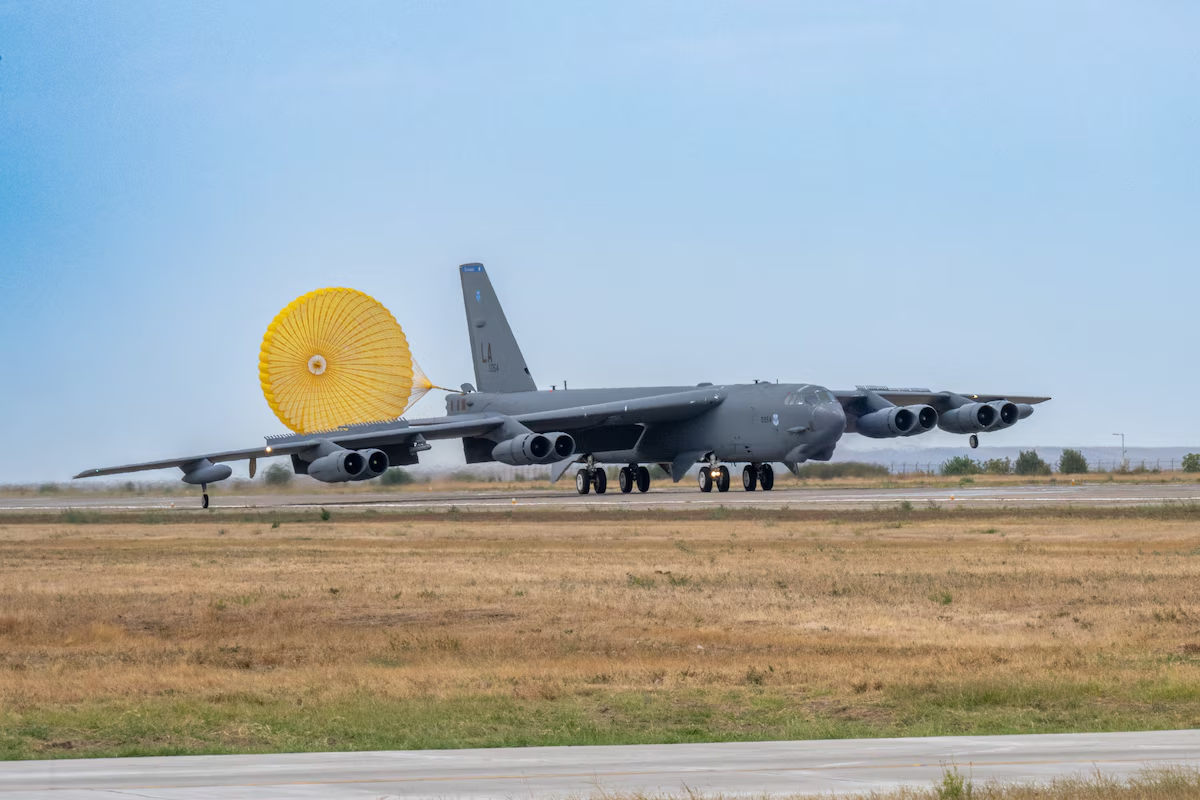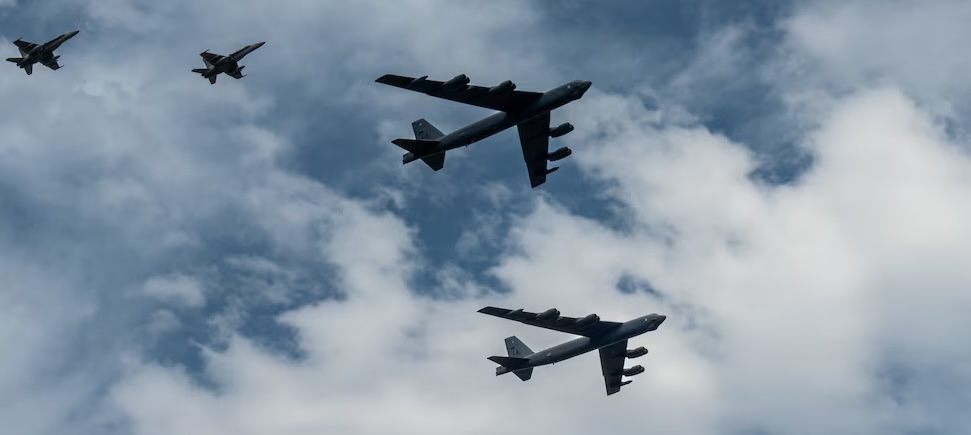Already a subscriber? Make sure to log into your account before viewing this content. You can access your account by hitting the “login” button on the top right corner. Still unable to see the content after signing in? Make sure your card on file is up-to-date.
Two US Air Force B-52H Stratofortress bombers were intercepted by Russian fighters over the Barents Sea, with conflicting accounts from both Russia and the United States. Departing from Louisiana, the bombers flew over Finland, near Russia, before making their way to Romania. They landed at Romania’s Mihail Kogalniceanu Air Base, marking the first time US strategic bombers have operated from this location.
What Russia is saying: In a statement, Russia’s Ministry of Defense said, “The crews of the Russian fighters identified the aerial target as a pair of US Air Force B-52H strategic bombers. As the Russian fighter jets approached, the American strategic bombers adjusted their flight course … and subsequently turned away from the state border of the Russian Federation.”

What the United States is saying: In an article published by the United States Air Force, they acknowledged that two Russian aircraft intercepted the bombers over the Barents Sea. Despite Russian claims, “The US aircraft did not change course due to the intercept and continued along their scheduled flight plan without incident, allowing the B-52s to perform their pre-planned mission which included integration alongside NATO fighter aircraft before landing at Mihail Kogalniceanu Air Base.”
Digging Deeper: Despite Russia’s claims, they frequently encounter interceptions by US aircraft when operating bombers near Alaska. For instance, in May of last year, US fighter jets intercepted six Russian aircraft, including TU-95 bombers, IL-78 tankers, and SU-35 fighter jets, in the Alaska Air Defense Identification Zone (ADIZ). These types of intercepts are routine, occurring about six or seven times a year, and are not considered a direct threat.

Missions Significance: The arrival of the bombers in Romania marks the first time US strategic bombers have operated from the country, which the Air Force has highlighted as a “strategic importance” for the Black Sea region. Gen. James Hecker, USAFE-AFAFRICA commander, emphasized, “The US is dedicated to working alongside our NATO Allies and partners along the Eastern Flank to ensure we have the combined skills and coordination capabilities necessary to maintain regional safety, security, and stability.”






